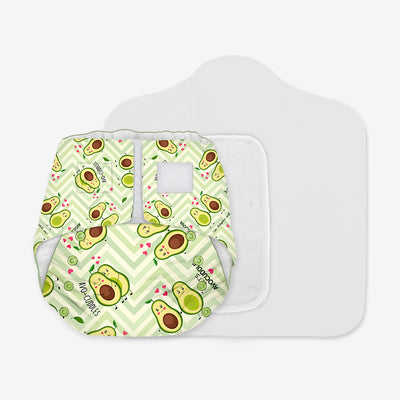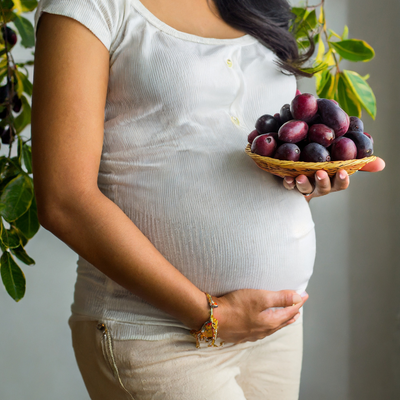Makhana During Pregnancy: Benefits & Side Effect

Eating Makhana During Pregnancy: Benefits & Side Effect
Pregnancy is a remarkable journey that involves numerous decisions about what to eat and what to avoid in order to ensure the health and well-being of both mother and child. In the midst of this, discovering traditional foods with proven nutritional benefits becomes critical. Makhana, also known as fox nuts or lotus seeds, has become a popular choice for expectant mothers due to its numerous health benefits. Makhana, known for its crunchy texture and subtle flavor, is not only a tasty snack but also a nutrient-dense food. In this blog, we'll look at why incorporating Makhana into your diet during pregnancy can benefit both maternal health and fetal development.
Nutritional Value of Makhana
Makhana, also known as fox nuts or lotus seeds, has an impressive nutritional profile, making it an excellent addition to pregnancy diet. Makhana is a healthy snack option that contains essential nutrients such as protein, fiber, calcium, iron, and magnesium. Its low calorie count and lack of saturated fat make it a guilt-free treat for health-conscious people.
Can You Eat Makhana During Pregnancy?
Makhana is not only safe, but also highly recommended during pregnancy because of its high nutritional value. Its high protein and fiber content help to keep energy levels stable and promote digestive health, both of which are common concerns during pregnancy. Makhana is also low in sodium and cholesterol, making it an ideal heart-healthy snack. However, moderation is key, and consulting with a healthcare provider is recommended before making any significant dietary changes during pregnancy..
Benefits of Makhana During Pregnancy
Rich in Protein:
Makhana serves as a valuable source of plant-based protein, crucial for supporting the rapid growth and development of the fetus. Adequate protein intake during pregnancy helps in the formation of tissues, organs, and muscles, ensuring the healthy development of the baby.
High in Calcium:
The significant calcium content in Makhana contributes to the formation of strong bones and teeth in both the mother and the developing baby. Calcium is essential for preventing conditions like osteoporosis in the mother and ensuring proper skeletal development in the fetus.
Boosts Energy Levels:
Pregnancy often brings about fatigue due to increased energy demands. Makhana, being rich in carbohydrates, provides a sustainable source of energy, combating tiredness and helping pregnant women stay active throughout the day.
Aids Digestion:
Makhana is an excellent source of dietary fiber, which supports healthy digestion during pregnancy. Fiber helps prevent constipation, a common discomfort experienced by pregnant women, by promoting regular bowel movements and easing digestive processes.
Low Glycemic Index:
With its low glycemic index, Makhana helps regulate blood sugar levels, which is particularly beneficial for pregnant women at risk of gestational diabetes. Stable blood sugar levels are essential for the health of both the mother and the baby.
Rich in Antioxidants:
Makhana contains potent antioxidants such as flavonoids, which help protect cells from oxidative stress and damage. During pregnancy, antioxidant-rich foods like Makhana can support maternal health by reducing the risk of chronic diseases and promoting overall well-being.
Supports Heart Health:
Makhana is devoid of saturated fats and cholesterol, making it a heart-healthy snack option for pregnant women. Consuming Makhana helps maintain cardiovascular health, lowering the risk of hypertension and other heart-related complications during pregnancy.
Satiates Hunger:
The high fiber content of Makhana helps in controlling appetite and managing hunger cravings during pregnancy. By promoting a feeling of fullness, Makhana can prevent excessive snacking and aid in weight management, contributing to a healthier pregnancy.
Side Effects of Eating Makhana During Pregnancy
While Makhana is generally safe and beneficial during pregnancy, there are a few potential side effects to be aware of:
Allergic Reactions:
Some individuals may be allergic to Makhana. Allergic reactions can range from mild symptoms like itching and hives to more severe reactions such as swelling of the face, lips, or tongue. Pregnant women with known food allergies should avoid Makhana or consult with their healthcare provider before consuming it.
Gastrointestinal Issues:
In rare cases, eating Makhana may cause gastrointestinal discomfort such as bloating, gas, or indigestion. This can be due to individual differences in digestive tolerance or consuming Makhana in large quantities. Pregnant women experiencing persistent digestive issues after consuming Makhana should moderate their intake or seek medical advice.
Contamination Risk:
Improper storage or handling of Makhana can lead to contamination with bacteria or fungi, posing a risk of foodborne illnesses. Pregnant women should ensure they purchase Makhana from reputable sources and store it in a cool, dry place to minimize the risk of contamination.
High Sodium Content:
Some commercially processed Makhana products may contain added salt for flavoring. Pregnant women should be cautious of excessive sodium intake, as it can contribute to fluid retention and high blood pressure, especially for those with pre-existing hypertension or preeclampsia.
Caloric Density:
While Makhana is a nutritious snack, it is important for pregnant women to consume it in moderation. Excessive consumption of calorie-dense foods like Makhana can contribute to weight gain, which may increase the risk of gestational diabetes and other pregnancy-related complications.
How Much Makhana Can You Eat During Pregnancy?
Consult with Your Healthcare Provider:
Before incorporating Makhana into your pregnancy diet, it's essential to consult with your healthcare provider. They can provide personalized recommendations based on your overall health, nutritional needs, and any specific dietary concerns.
Consider Your Daily Caloric Intake:
Makhana is a nutritious snack, it's important to consider your overall caloric intake during pregnancy. Eating too many Makhana or other calorie-dense foods can contribute to excessive weight gain, which may increase the risk of pregnancy complications.
Moderation is Key:
As with any food during pregnancy, moderation is key when consuming Makhana. Aim to include Makhana as part of a balanced diet rather than relying on it as a primary source of nutrients. Snack on a handful of Makhana as a nutritious option between meals rather than consuming large quantities in one sitting.
Listen to Your Body:
Pay attention to your body's hunger and satiety cues when eating Makhana. Stop eating when you feel satisfied, and avoid mindless snacking. Eating Makhana in moderation can help prevent overeating and promote healthy weight management during pregnancy.
Consider Nutritional Balance:
While Makhana is a healthy snack choice, it's essential to ensure you're getting a variety of nutrients from other food sources as well. Incorporate a diverse range of fruits, vegetables, lean proteins, whole grains, and dairy products into your pregnancy diet to meet your nutritional needs.
Monitor for Any Adverse Reactions:
If you experience any adverse reactions after eating Makhana, such as gastrointestinal discomfort or allergic symptoms, discontinue consumption and consult with your healthcare provider. They can help determine if Makhana is suitable for you and provide alternative snack options if needed.
By following these guidelines and listening to your body's needs, you can enjoy Makhana as a nutritious addition to your pregnancy diet while ensuring the health and well-being of both you and your baby.














